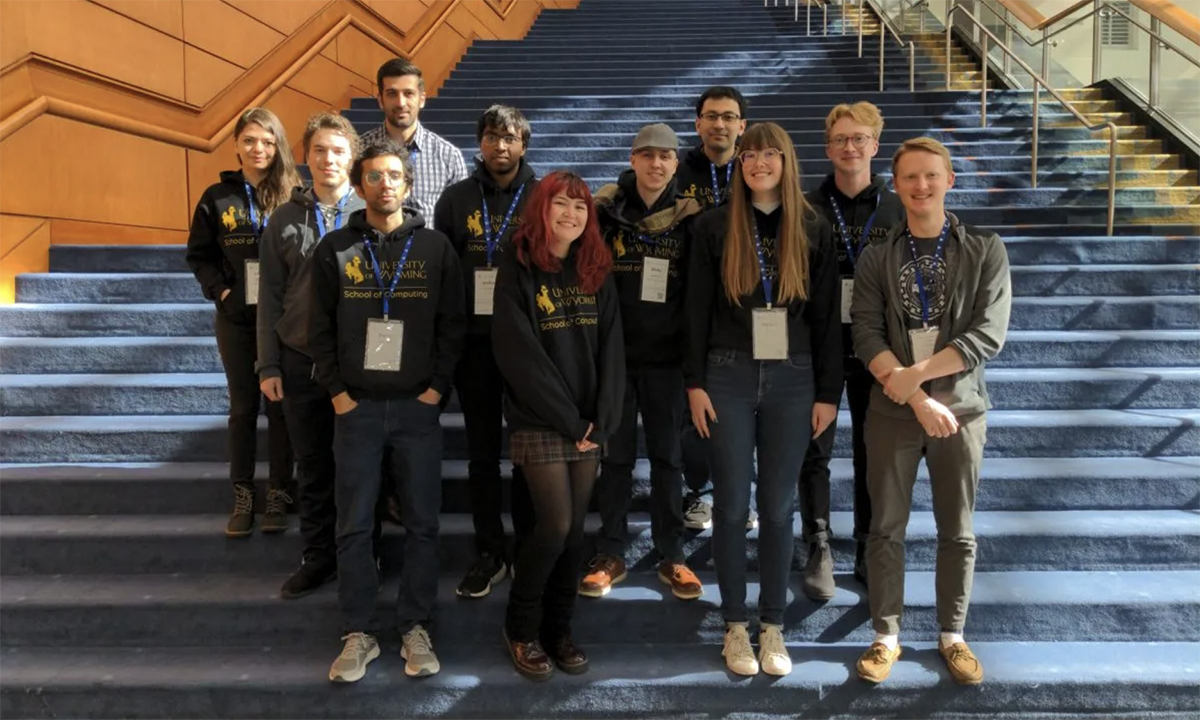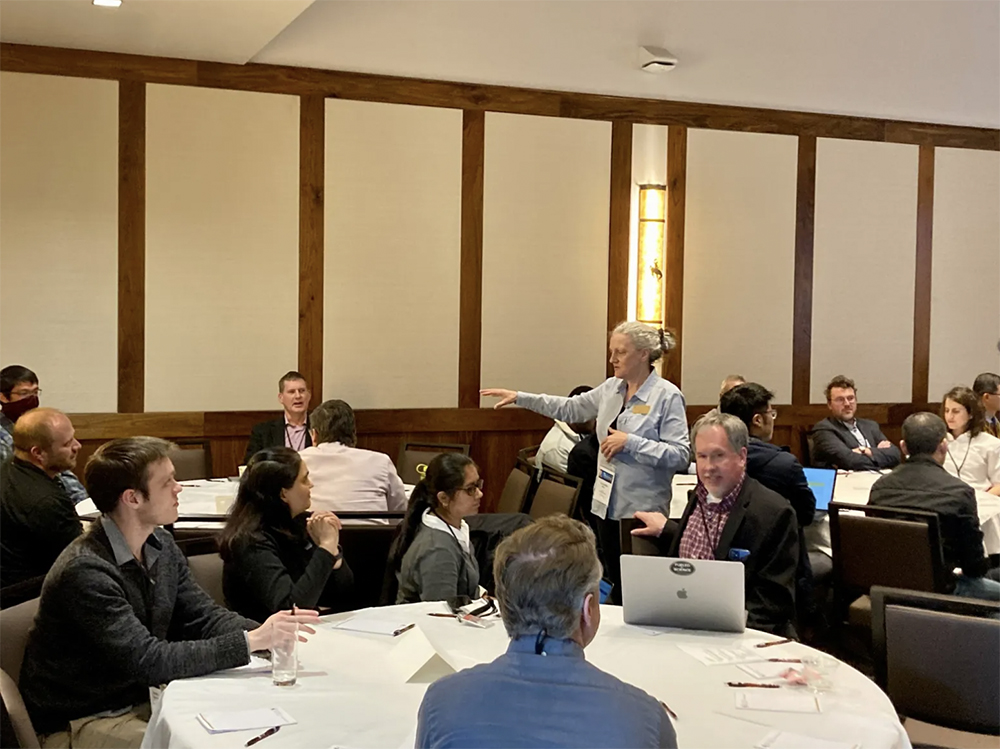State Funds UW Computing School to Boost Economy
New School of Computing will offer Wyomingites more chances to pursue digital degrees in the state.

Get stories like this delivered straight to your inbox. Sign up for The 74 Newsletter
The state known for its traditions of coal and cattle will be advancing a new tech sector this fall: computing. The University of Wyoming’s School of Computing will be opening as a centerpiece of the Wyoming Innovation Partnership, an initiative intended to build workforce resilience and boost the state’s economy.
The initiative is not a move away from the state’s bread and butter industries, said former state Rep. Tyler Lindholm, who is now the Wyoming director for the Americans for Prosperity, a conservative political advocacy group.
“They’re the ones that have kept us alive for decades and decades, they’re our stalwart champions,” Lindholm said. “But it also comes down to the fact that Wyoming exports our most natural precious resource, and that’s kids.”
After graduating from high school and college, young Wyomingites leave their homes at some of the highest rates of out-of-state migration in the nation, although that slowed during the pandemic. Between 2014 and 2020, Wyoming’s millennial population — people ages 24 to 39 — decreased by 6%, according to a Wyoming Department of Workforce Services’ report.
“So a lot of the ideology behind being tech forward, and figuring out a way to attract these businesses, is honestly [about] keeping our kids,” Lindholm said.
Gov. Mark Gordon acted on this issue in 2021 by ordering the innovation parternship’s implementation using American Rescue Plan funds. The program focuses on driving statewide development through digital infrastructure and entrepreneurship. The efforts emphasize coordination between the state government, community colleges and UW.
Teaching tech
The School of Computing, as a key component of the initiative, is billed as “a hub of innovation and knowledge exchange providing UW students, faculty, and Wyoming businesses and citizens with a ‘backpack’ of computational tools and approaches to drive transformation.”
While the initiative is recent, Wyoming’s tech-forward movement began around 2016 while Lindholm was still in office. The state became the first in the nation to implement K-12 computer science education and led in pro-blockchain law. It remains ranked the most crypto-friendly state in the U.S.
The state also took a stride in computing efforts by bringing the NCAR-Wyoming Supercomputing Center to Cheyenne in 2012.
“Wyoming has really innovated in computing,” said Gabrielle Allen, the computing school’s director. “I think what we haven’t had is the ability to kind of pull that together to be really strategic in how that impacts the university and the state.”
The way the state has coordinated the innovation partnership has garnered national attention, said UW President Ed Seidel, who is married to Allen. Seidel serves on the advanced scientific computing advisory committee for the Department of Energy.
“We had people there from the White House talking particularly about the importance of all of these digital areas and artificial intelligence and how we have a national crisis and must invest,” Seidel said at the June Board of Trustees meeting. “I’m able to hold up the fact that in Wyoming we have the whole state organized around this. It’s really getting a lot of attention on the national level.”
Top priority is deploying “new computing tools that are particularly relevant to solve the problems and the challenges and opportunities that we have in the state,” Allen said. “We have a lot of cool applications … that relate to the environment, the climate, weather, animal migration, controlled environment, agriculture, ranching.”
The school is designed as an interdisciplinary hub to reach the state’s varied markets and students in all academic areas through applied computing skills, the practice of integrating computer science with another discipline.
Bryan Shader, a professor of mathematics selected by Seidel to organize UW faculty behind the school, said the academic unit is also focused on reaching students at different academic stages and interests.
By providing an applied computing degree, “that allows a larger swath of students to be part of the computing field,” Shader said. “So computing is no longer just the purview of the people that want to be a computer scientist.”
Cashing in on education
Despite the school’s inclusive aspirations, Shader said it’s been a long process of getting people interested and invested in the school’s mission.
“It’s partially a social and economic question,” Shader said. “And it’s dealing with change. I think you have to be really careful not to mandate anything or shove things down people’s throats. I’m a really strong believer that if people have an opportunity to see value added, and are welcomed to sit at the table, most people will find ways to seize opportunities.”
With transferable computing skills, students can become entrepreneurs and business owners in the state, whether they’re from Sheridan, or Cody, or Jackson, Allen said. “We want to show them that there are modern opportunities. But we need to build up that infrastructure.”
“I think that’s the importance of things like the Wyoming Innovation Partnership and the aims there, because we need a whole ecosystem,” Allen said. “I’ve spoken to small tech companies in the area who, who kind of have to maintain a part of their business in Colorado, for example, purely for workforce needs, and they would like to expand in Wyoming.”
Shader said he could name 15-20 Wyoming businesses looking to hire UW students with data science, AI and software development backgrounds.

This fall, the school is gearing up to infuse Wyoming with a more computing-savvy workforce. During this inaugural year, undergraduate students will be able to pursue a minor in computing. Some 16 graduate computing scholars will interface with the school to help guide its growth and design.
Right now, the school is implementing a Bachelor of Science in an applied software development degree as a program where students will begin their degree at one of the state’s community colleges and finish the program at the university. There are already 15 participating students at Sheridan Community College.
Also in the works is a Bachelor of Science and a Bachelor of Arts in applied computing. Eventually the school also hopes to offer a master’s in computing around AI and certificate course options.
Aside from the formal programs, this fall the university will see the largest group of students — 220 — take the school’s intro to computer science course, Shader said.
“I do think that there’s a beginning sense amongst the students, that, hey, having some computing can benefit them, regardless of what their major is,” Shader said.
But developing a young tech workforce must be reinforced by a strong post grad market, Lindholm said.
“My concern is, can we maintain this momentum, stay on top of our laws and stay hungry on this?” Lindholm asked. “If we can do that, if we can stay hungry, and stay on top of these laws and find new ways to advance our state economically, then really, Wyoming’s future is exceptionally bright.”
WyoFile is an independent nonprofit news organization focused on Wyoming people, places and policy.
Get stories like these delivered straight to your inbox. Sign up for The 74 Newsletter

;)